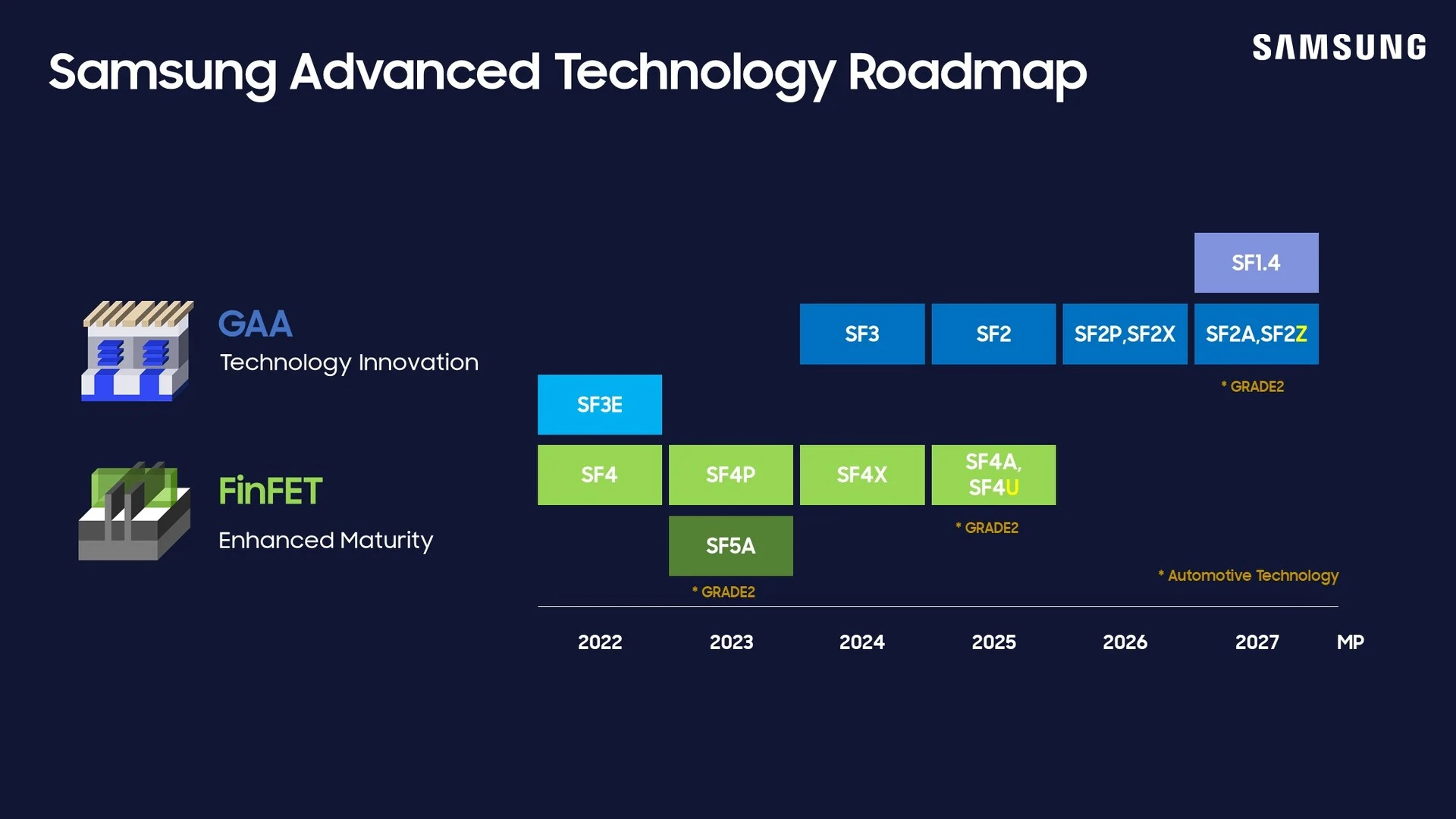Key Takeaways
1. Samsung Foundry is facing issues with low yields from its SF3 node, delaying the launch of the Exynos 2500.
2. The upcoming 1.4 nm node (SF1.4) may be abandoned, with potential delays instead of a complete scrapping.
3. Samsung is currently focused on the Exynos 2600 and AI chips while receiving new orders for its 4 nm nodes.
4. Samsung Foundry’s market share is only 8.2%, significantly lower than TSMC’s 67.1%, raising concerns about its future.
5. Possible restructuring within Samsung Foundry may include integrating the Exynos division into Samsung MX for better oversight.
Samsung Foundry’s troubles could be getting even worse. After disappointing yields from its SF3 node, which caused the Exynos 2500 launch to be delayed, the company had to scale back some of its older 5 nm and 7 nm processes due to low interest. Now, reliable insider @Jukanlosreve has suggested that Samsung’s upcoming 1.4 nm node (SF1.4) might be completely abandoned.
Potential Changes to SF1.4
A prior roadmap from Samsung Foundry indicated that SF1.4 was set to begin high volume manufacturing (HVM) by 2027. This node was supposed to run alongside SF2A, which is geared toward automotive applications, and SF2Z, marking the first node featuring a Backside Power Delivery Network (BSPDN). However, there is a chance that SF1.4 could be delayed further instead of being entirely scrapped.
Current Developments
For the moment, Samsung Foundry is still working on the Exynos 2600 utilizing SF2, along with some artificial intelligence chips for PFN. Additionally, some of its 4 nm nodes have received new orders from a few Chinese fabless companies affected by trade restrictions. However, key players continue to turn away from Samsung, opting for TSMC or even Intel instead.
Market Share Concerns
According to the Korea Economic Daily, Samsung Foundry might undergo significant changes due to its low market share of just 8.2%, which pales in comparison to TSMC’s dominating 67.1%. This could lead to substantial restructuring within the organization. Business Post reports that the Exynos division may be integrated into Samsung MX, which would provide greater oversight over upcoming smartphone SoC designs.
Source:
Link


Leave a Reply